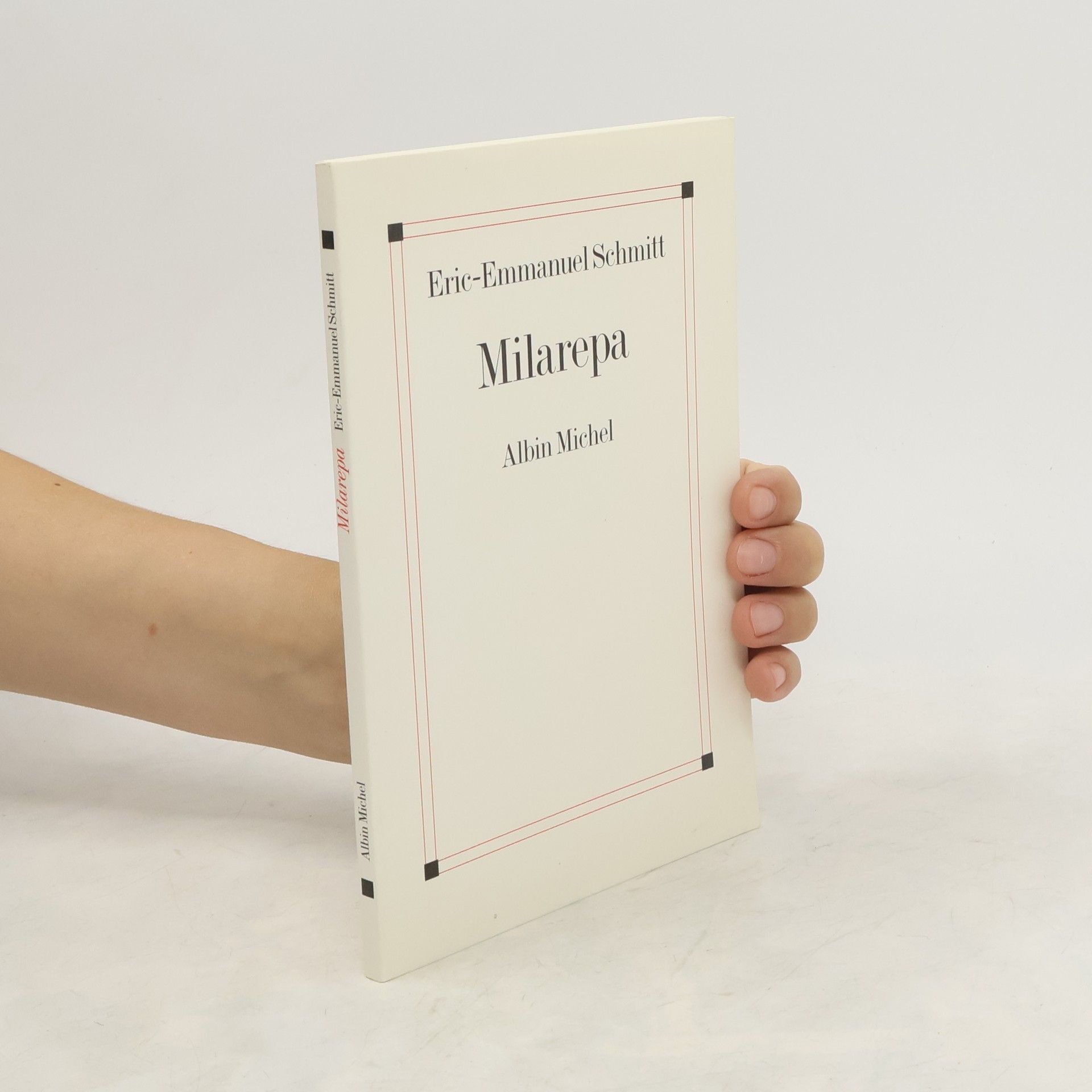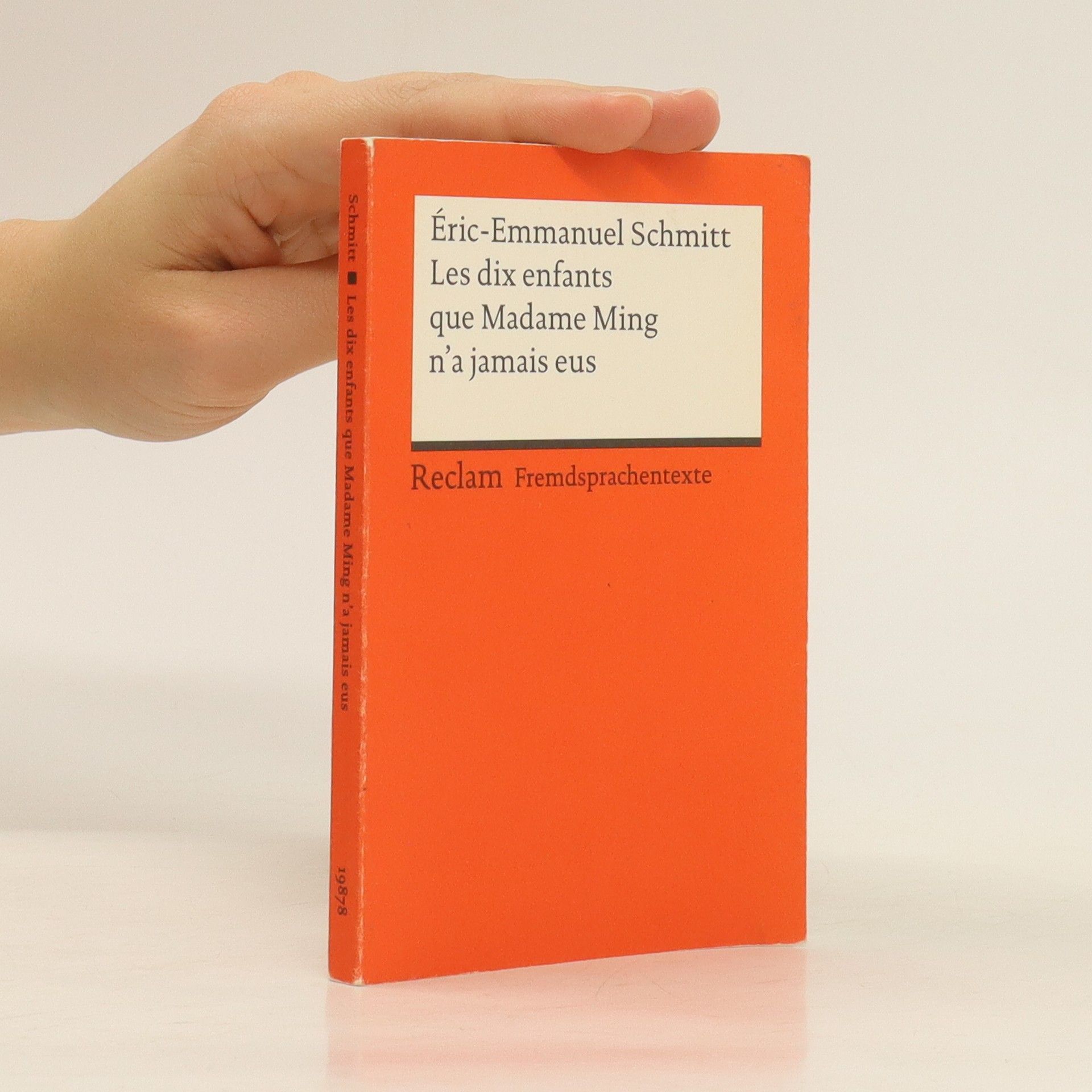In this captivating tale, Simon dreams of breaking free from the cycle of rebirth, weaving the story of Svastika and Milarepa. Eric-Emmanuel Schmitt explores themes of hatred and redemption, recounting the journey of the Tibetan monk Milarepa from vengeance to enlightenment, addressing profound existential questions.
El Ciclo de lo Invisible Serie
Esta serie se sumerge en las profundidades de las religiones mundiales y las tradiciones espirituales. Cada entrega explora caminos únicos hacia la iluminación a través de narrativas cautivadoras. Descubre la búsqueda universal de significado, fe y humanidad. Es un viaje literario a través de culturas y creencias.
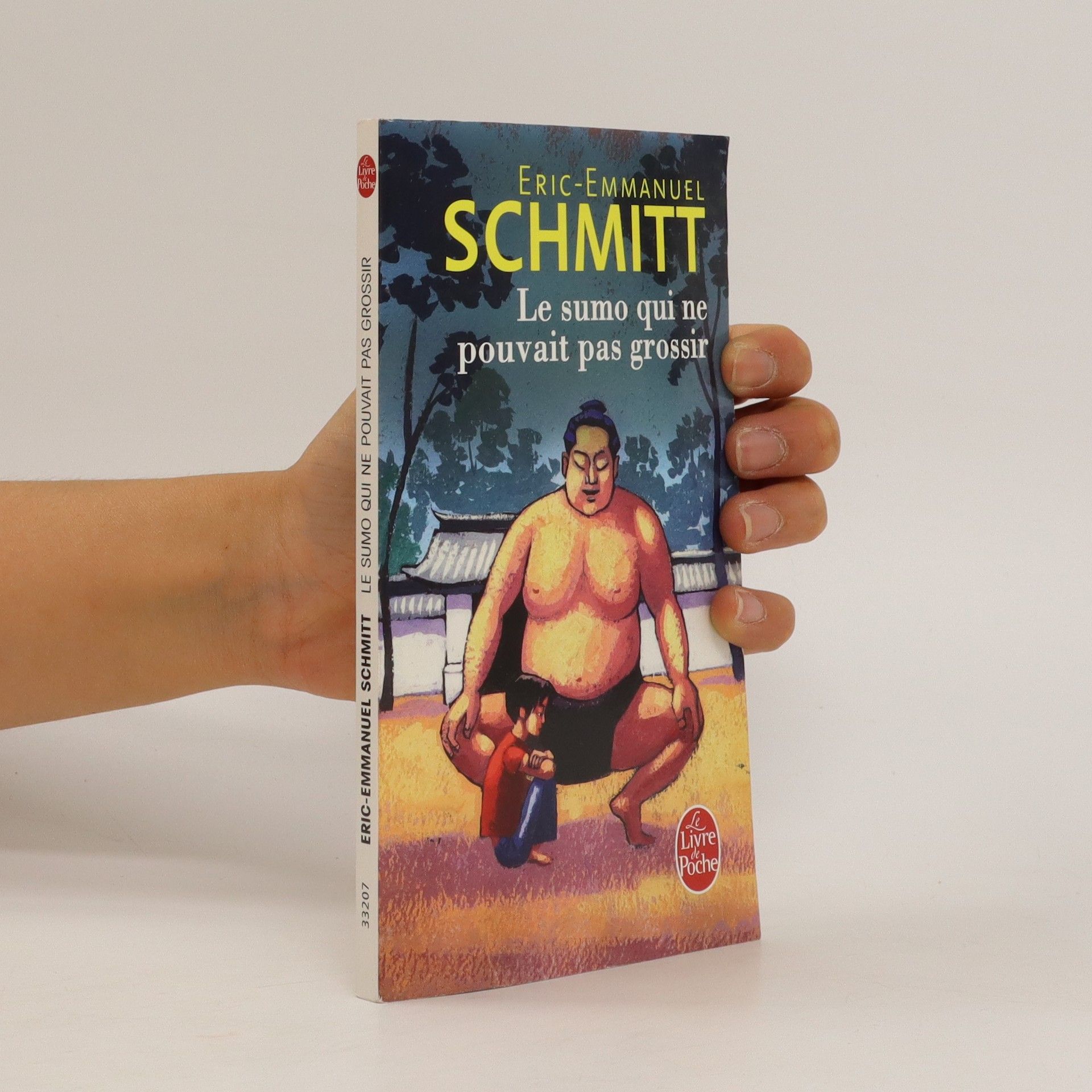

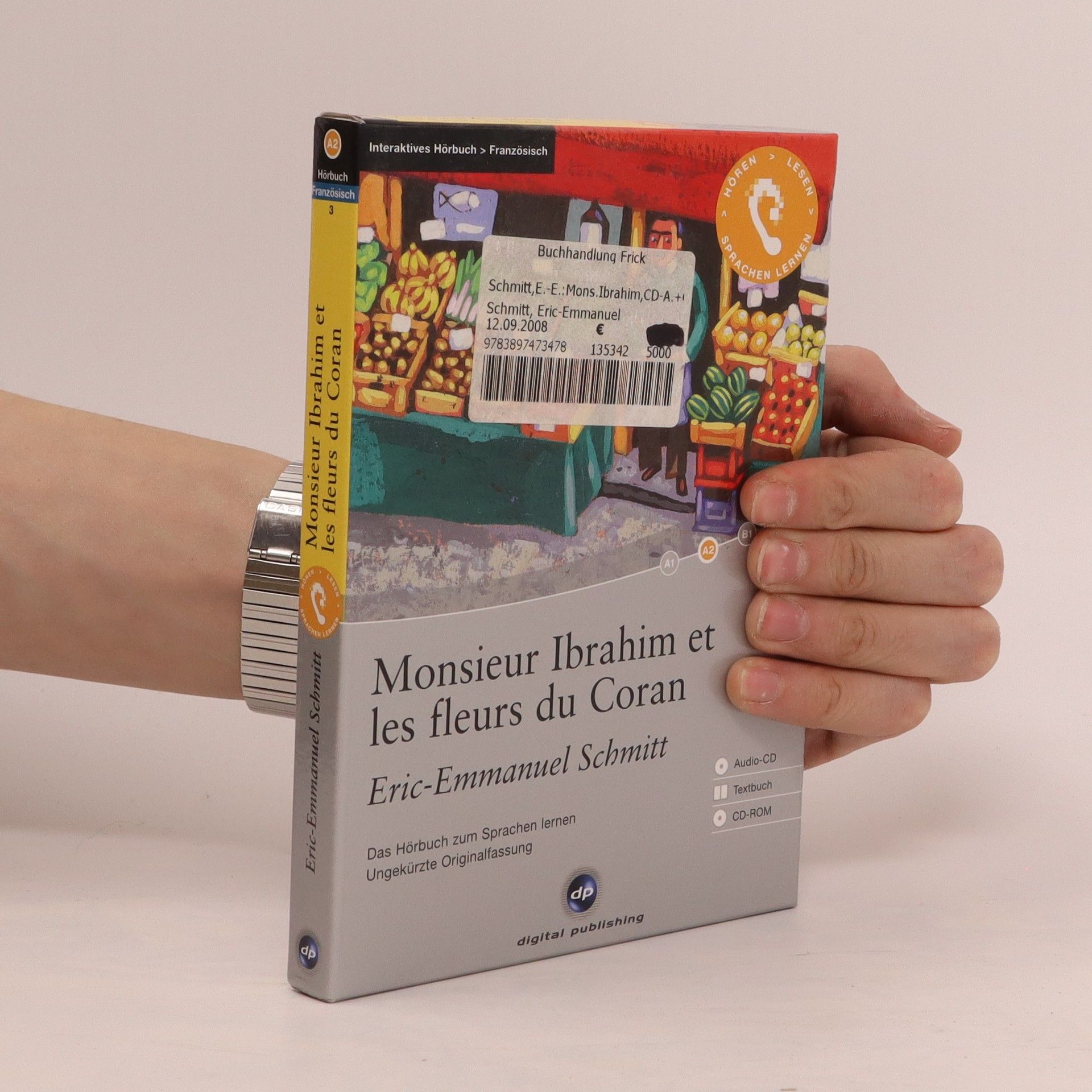

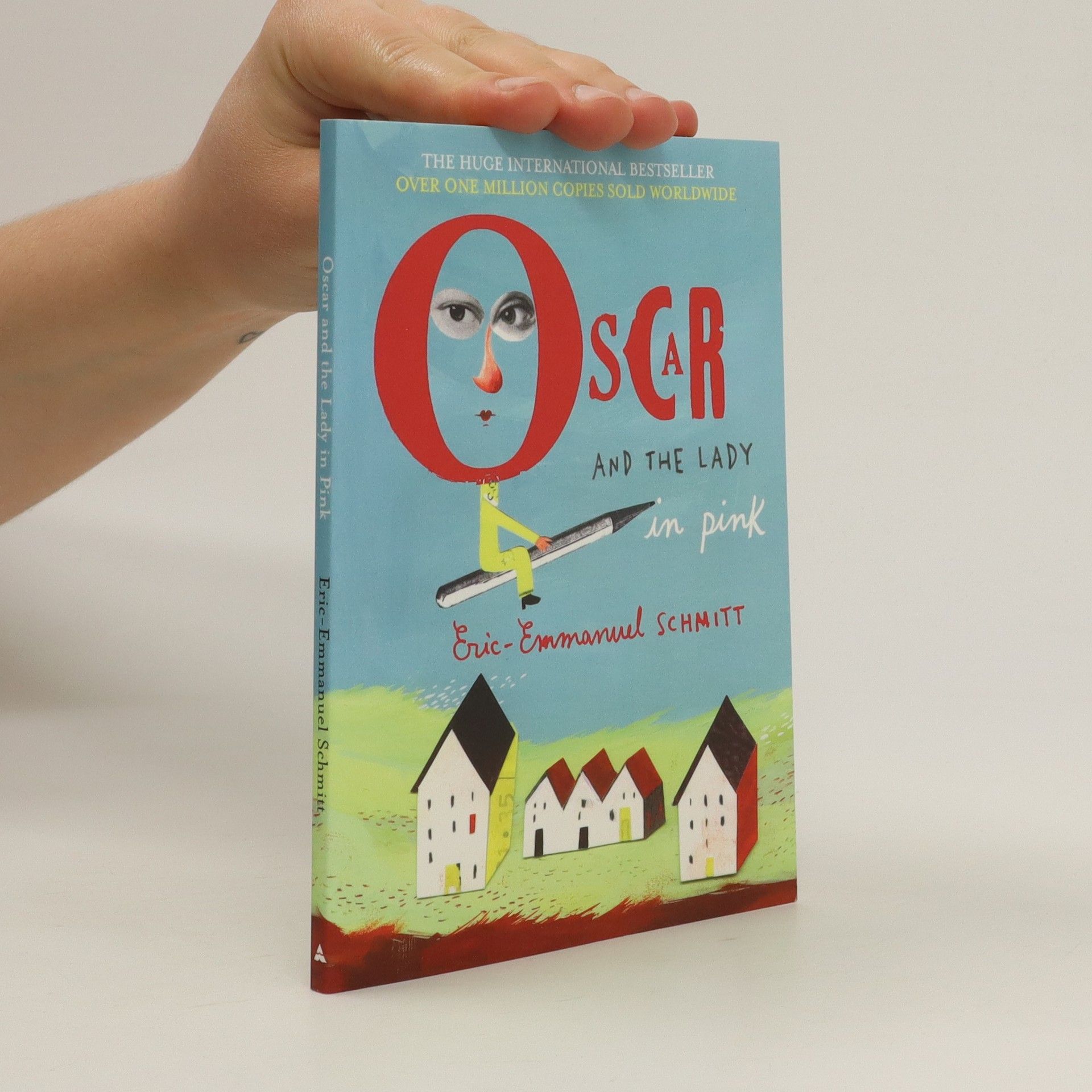

Orden recomendado de lectura
- 1
- 2
Monsieur Ibrahim and the Flowers
- 64 páginas
- 3 horas de lectura
Internationally acclaimed play of cross-cultural friendship.Paris in the 1960s. Thirteen-year-old Moses lives in the shadow of his less-than loving father. When he's caught stealing from wise old shopkeeper Monsieur Ibrahim, he discovers an unlikely friend and a whole new world. Together they embark on a journey that takes them from the streets of Paris to the whirling dervishes of the Golden Crescent. This delightful, moving play has already been a huge hit in Paris and New York. Performed in thirteen countries and published in twelve languages, it is also an award-winning film starring Omar Sharif. Monsieur Ibrahim and the Flowers of the Qur'an received its UK premiere at the Bush Theatre on 17 January 2006.
- 3
Oscar and the lady in pink
- 88 páginas
- 4 horas de lectura
"First published in France as Oscar et la dame rose by Editions Albin Michel, S.A., 2002"--T.p. verso.
- 5
Le sumo qui ne pouvait pas grossir
- 96 páginas
- 4 horas de lectura
Sauvage, révolté, Jun promène ses quinze ans dans les rues de Tokyo, loin d'une famille dont il refuse de parler. La rencontre surprenante d'un maître du sumo, qui décèle un "gros" en lui malgré son physique efflanqué, va l'entraîner dans la pratique du plus mystérieux des arts martiaux. Avec lui, Jun découvre le monde insoupçonné de la force, de l'intelligence et de l'acceptation de soi. Mais comment atteindre le zen lorsque l'on est dans la douleur et la violence ? Comment devenir sumo quand on ne peut pas grossir ?
- 6
»Les dix enfants que madame Ming n’a jamais eus« von 2012 ist der sechste Teil des philosophisch grundierten »Cycle de l’Invisible«, in dem Éric-Emmanuel Schmitt sich mit den Weltreligionen befasst. Der Name des Zyklus erklärt sich aus Schmitts Suche nach dem »Unsichtbaren«, das heißt nach dem nicht rational Fassbaren, sei es religiöser, mystischer oder metaphysischer Natur, und nach dem Verbindenden zwischen den verschiedenen religiösen Überzeugungen und Kulturen. Ein Pariser Geschäftsmann, Einkäufer von Spielwaren, trifft in China auf Frau Ming, die Toilettenfrau, die ihm – im Land der Ein-Kind-Familie! – von ihren zehn Kindern erzählt und sich als Vermittlerin konfuzianischer Weisheiten entpuppt. Ungekürzte und unbearbeitete Textausgabe in der Originalsprache, mit Übersetzungen schwieriger Wörter am Fuß jeder Seite, Nachwort und Literaturhinweisen.
- 7
En suivant les cours de la tyrannique Mme Pylinska, le jeune Eric-Emmanuel cherche à comprendre le mystère de la musique de Chopin. La Polonaise a de surprenantes façons dexpliquer le génie du musicien et la leçon de piano devient peu à peu apprentissage de la vie et de lamour. Dans le cadre duCycle de linvisible, un conte initiatique plein démotion, dintelligence et d'humour.
- 8
CZASEM BY ODNALEŹĆ SENS ŻYCIA, TRZEBA WRÓCIĆ DO ŹRÓDEŁ SWOJEGO ISTNIENIAM Jego imię znaczy szczęśliwy Felix wie to od mamy, Fatou, która mieszka w Paryżu i prowadzi kawiarnię, ale pochodzi z Afryki i ma moc nadawania znaczeń, bo widzi i rozumie więcej. Felix o swoim szczęściu nie myśli do czasu, gdy pewnego dnia wszystko w jego życiu się zmienia. Mama przestaje się uśmiechać, a w jej oczach gaśnie życie. Sprawia wrażenie martwej w środku. Chłopiec postanawia ratować ją za wszelką cenę zabiera Fatou do magicznej, migoczącej kolorami Afryki, gdzie na kobietę czekają duchy przodków. Pustynna ziemia skrywa potężne tajemnice, o których zachodni medycy nie mają pojęcia. Wśród nocy, w jasnym świetle księżyca do głosu dochodzą pradawne siły tylko one mogą wskrzesić w Fatou wolę istnienia i na powrót zjednoczyć ją z ziemią, która dała jej życie. Czy mały Flix zdąży doprowadzić matkę do niewidzialnego źródła, zanim będzie za późno? Czy znów będzie szczęśliwy? Najnowsza powieść Erica-Emmanuela Schmitta to nowa odsłona bestsellerowego Cyklu o Niewidzialnym. Podobnie jak niegdyś bohater Oskara i pani Róży Flix musi odkryć sens życia, a ma na to niewiele czasu.
From one of the world's biggest selling authors comes another million-copy worldwide bestseller: A beautiful and tender fable seen through the eyes of a Jewish child living in Belgium under the Nazi occupation. Isn't it time you discovered Eric-Emmanuel Schmitt?
Księga o Niewidzialnym
- 368 páginas
- 13 horas de lectura
Księga o Niewidzialnym to zbiorowe wydanie najpiękniejszych przypowieści Erica-Emmanuela Schmitta - Oskara i Pani Róży, Pana Ibrahima i kwiatów Koranu, Dziecka Noego, Zapasów z życiem - zawierające ponadto publikowaną po raz pierwszy w Polsce buddyjską baśń Milarepa. To opowieści, które poruszają najczulsze struny ludzkiej wrażliwości i przypominają o prawdziwym sensie życia – Niewidzialnym, lecz możliwym do odkrycia.
Oskar a růžová paní ; Noemovo dítě ; Pan Ibrahim a květy Koránu
- 256 páginas
- 9 horas de lectura
Společné vydání tří působivých příběhů s tématem velkých světových náboženství. Titulní hrdina první novely, desetiletý Oskar, umírá na rakovinu a prožívá v nemocnici svých posledních deset dnů života. Se svou starou ošetřovatelkou Růženkou vede nekončící rozhovor o Bohu a víře. Vážně i s humorem se oba staví k otázkám o smyslu života. Druhá novela vypráví příběh kněze, ukrývajícího za války v katolickém penzionátu židovské děti. Kromě dětí samotných ale zachraňuje i jejich kulturu: tajně shromažďuje kultovní předměty judaismu a zaslouží se o to, že děti neztratí kontakt se svým původem a náboženstvím. Poslední příběh je o přátelství židovského chlapce Moma a starého Araba Ibrahima. Po smrti chlapcova otce ho Ibrahim adoptuje a odjíždějí spolu na prázdninovou cestu do Ibrahimova rodiště, kde Ibrahim umírá a dospívající Momo po něm přebírá jeho koloniál, víru i životní filosofii.
